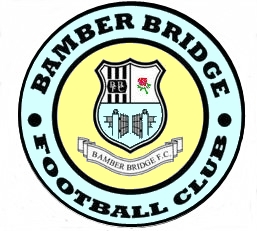 |
 |
 |
A Series of articles looking at some Old, Lost and sometimes just Interesting Football Stadiums around The UK
Stark's Park - Raith Rovers FC
This article, requested by Brig fan Martin Evans, looks at A Scottish Ground that is located in the Eastern coastal Town of Kirkcaldy in Fife. The Stadium is Stark’s Park, home of Raith Rovers and nicknamed by the locals as The “San Starko”
The Stadium is well known for a very unique looking “L” shaped stand that was built in 1925, with funds from the £3,000 sale of centre forward Alex James, to none other than Preston North End. The stand was designed by the renowned Grandstand architect, Sir Archibald Leitch and survives and is still in use today.
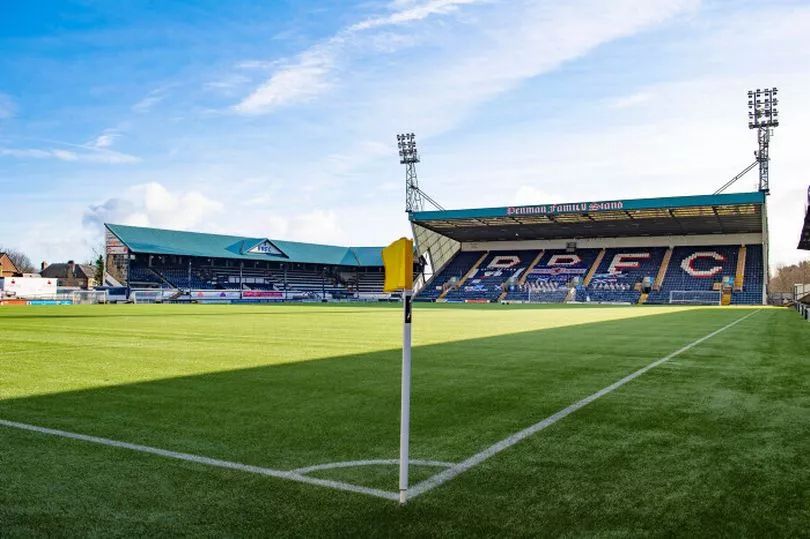
The Old and The new (Photo Courtesy of Photo by Paul Devlin / SNS Group)
Raith Rovers moved in Stark’s Park as long ago as 1891. The ground had little in the way of facilities and was initially just terracing, open to the elements, but in the 1920’s and opposite the newly constructed main stand, a covered enclosure running alongside the Edinburgh to Aberdeen Railway line that ran two thirds the length of the pitch was built and became affectionately know as “The Coo Shed”. The rest of the ground remained as ash and railway sleeper terracing.
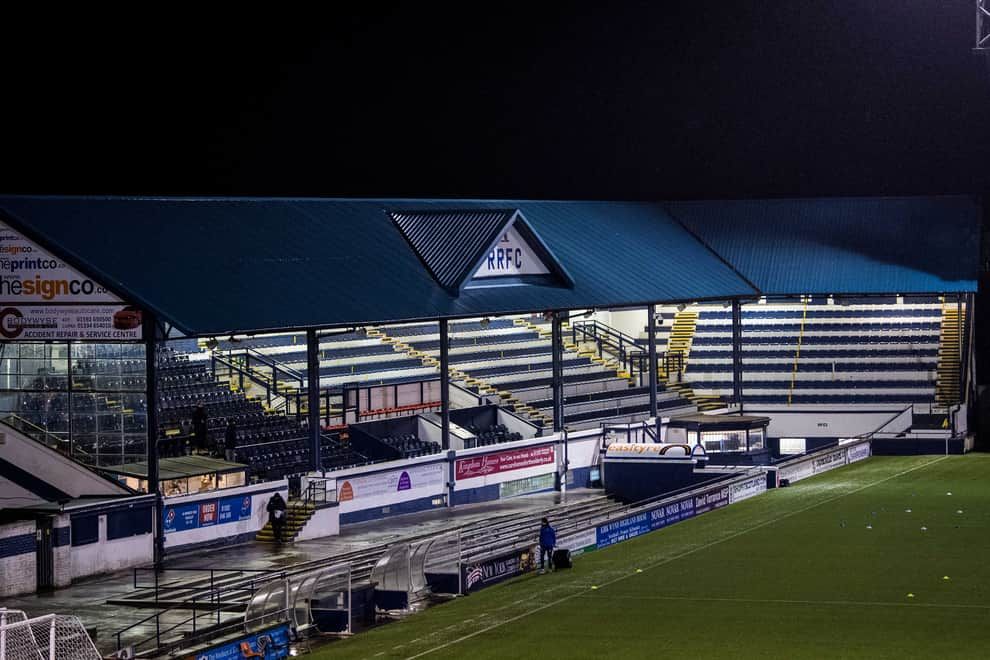
Superbly lit Main Stand by night (Photo courtesy of The Edinburgh news)
It wasn’t until the 1950’s that much of the old terracing was replaced with concrete and “sheds” were erected at the back of both ends, behind the goals to give partial covering to the supporters. Typical of several football grounds of the time the club sold advertising space on the pitched asbestos roofs of the covered areas to companies such as The Evening Dispatch, Nelsons Cigarettes and Barnett & Morton Ltd, the local ironmonger who had erected the sheds.
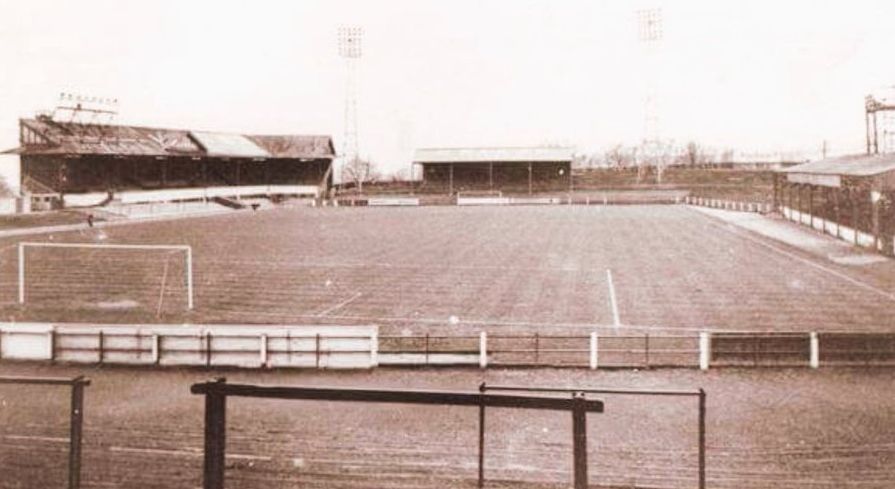
Stark's Park around the 1950's with the "Coo Shed" visible on the right- Photo courtesy of
@footballmemorys
Shortley after the terraces were upgraded, four large floodlight pylons were erected to allow evening midweek fixtures to be played all year round. Most of the cost of the work was covered, as was now normal practice at Raith Rovers, by the sale of players. These included, Jackie Stewart to Birmingham City, Jim Baxter to Rangers and Jimmy McEwan to Aston Villa
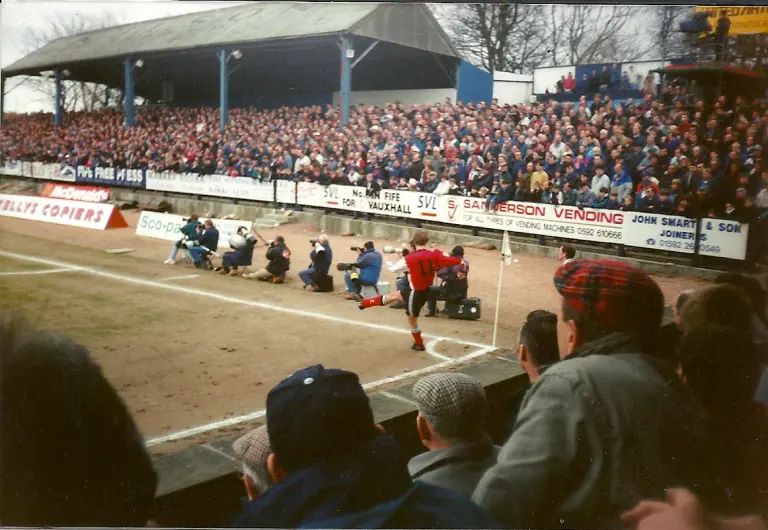
A packed Shed End, well one of them! - photo source unknown
The ground then remained unchanged for almost thirty years until the departure of a modern-day Alex James in the form of striker Andy Harrow who in 1981 was sold to Luton Town. The sale of this latest asset allowed the board to demolish the antiquated railway enclosure and build a 1,000 seat stand on the south side and terraced concrete steps at the North side.
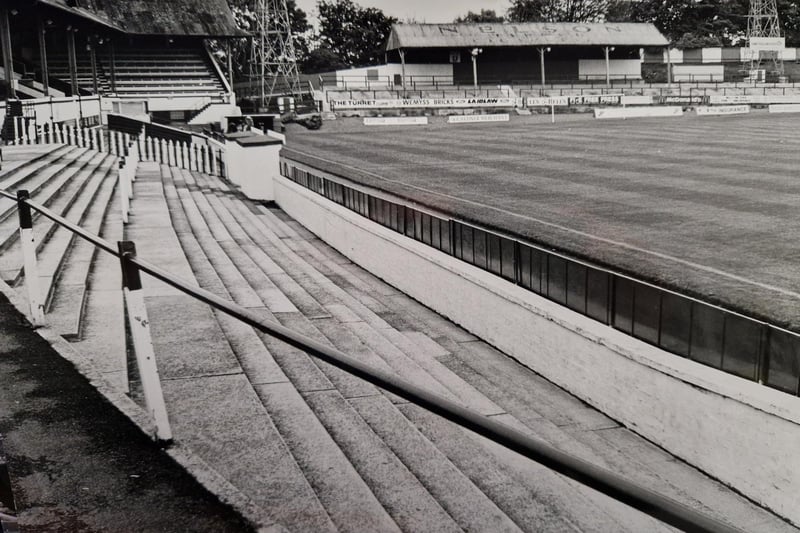
1960's Starks Park (Photo courtesy of "Fife Today"
Anticipating a swift return after relegation from the Premier league in 1992 the board spent £250,000 on upgrading both ends of the ground when the 1950s concrete was taken up and new terracing and crush barriers erected, although the sheds remained. Even though the board's confidence in winning promotion was well founded, the money spent would prove a poor investment, as after the last home game of season 1995–96 the bulldozers returned and demolished both ends of the ground and the railway enclosure.
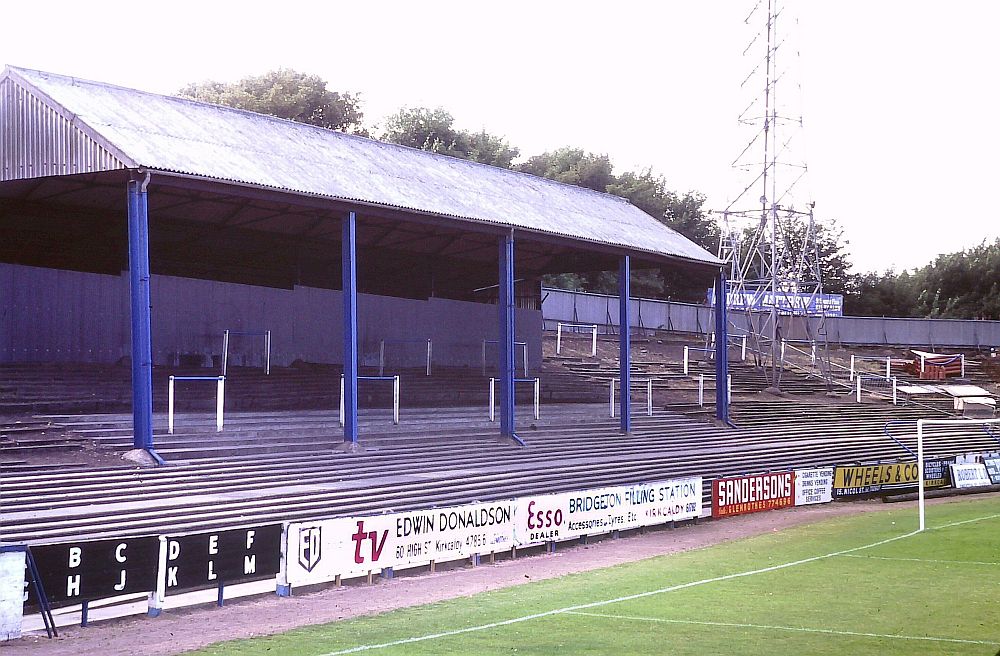
One of The shed Ends - Photo source unknown
Two 3,370 seat stands with inbuilt floodlight towers behind each goal and a 1000-seat stand to join onto the 1980s railway stand were erected. This work brought the ground capacity up to a creditable 10,700 all seater. During all of the above changes the main L shaped pavilion remained totally unchanged with its asbestos roof, concrete steps and wooden seats and benches. A new metal roof and plastic seating were finally installed in 1999 which slightly reduced the spectator capacity to 8,473.
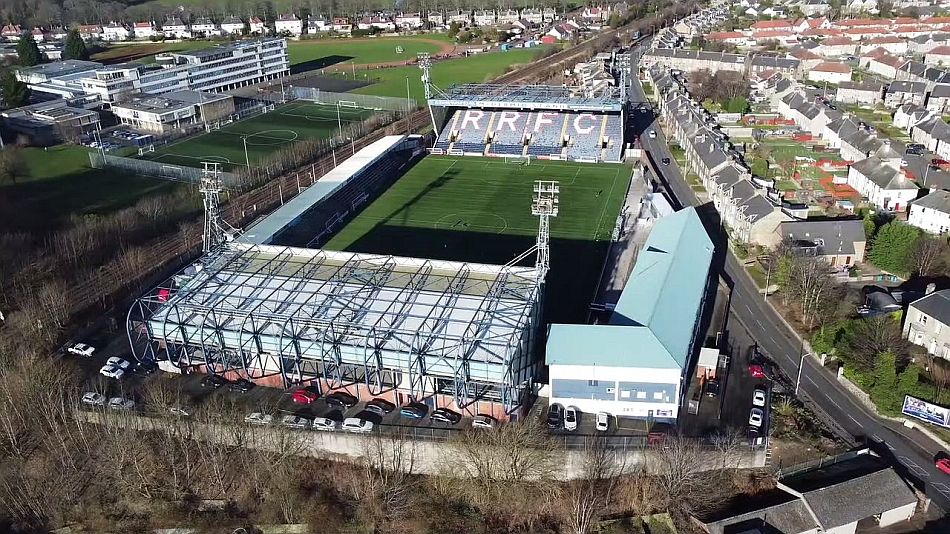
Airiel view of The "San Starko" Photo @dailymotion
Currently the Railway Stand is largly unused, although the club allowed Dundee United fans to sit in the stand for a Cup match in 2023. A trial was also carried out in another Cup tie against Dunfermline Athletic to allow a singing section for home supporters. The club are now looking to introduce safe standing areas within the stand.
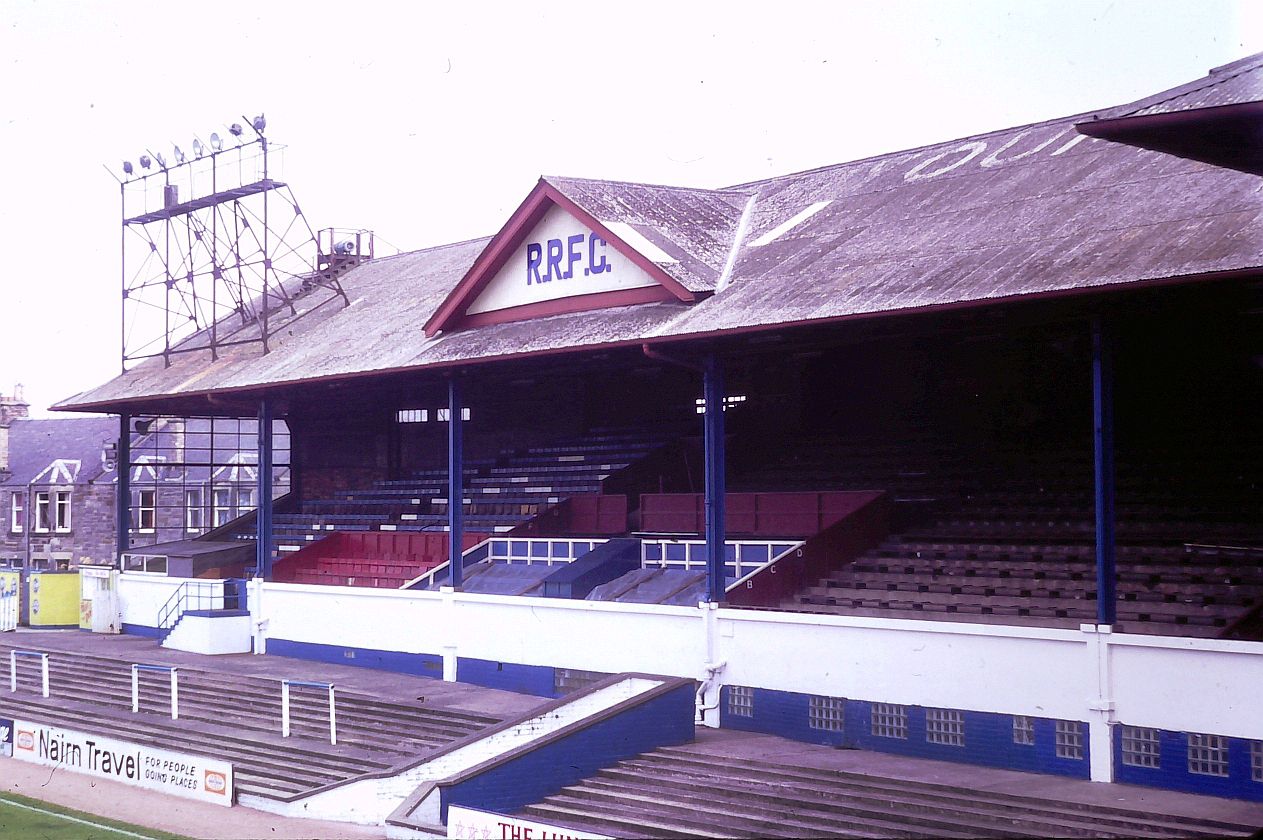
The Archibald Leitch designed main stand, buit in 1925 and still in use- photo source unknown
The Final change came in 2018 when an artificial 3g pitch was laid.
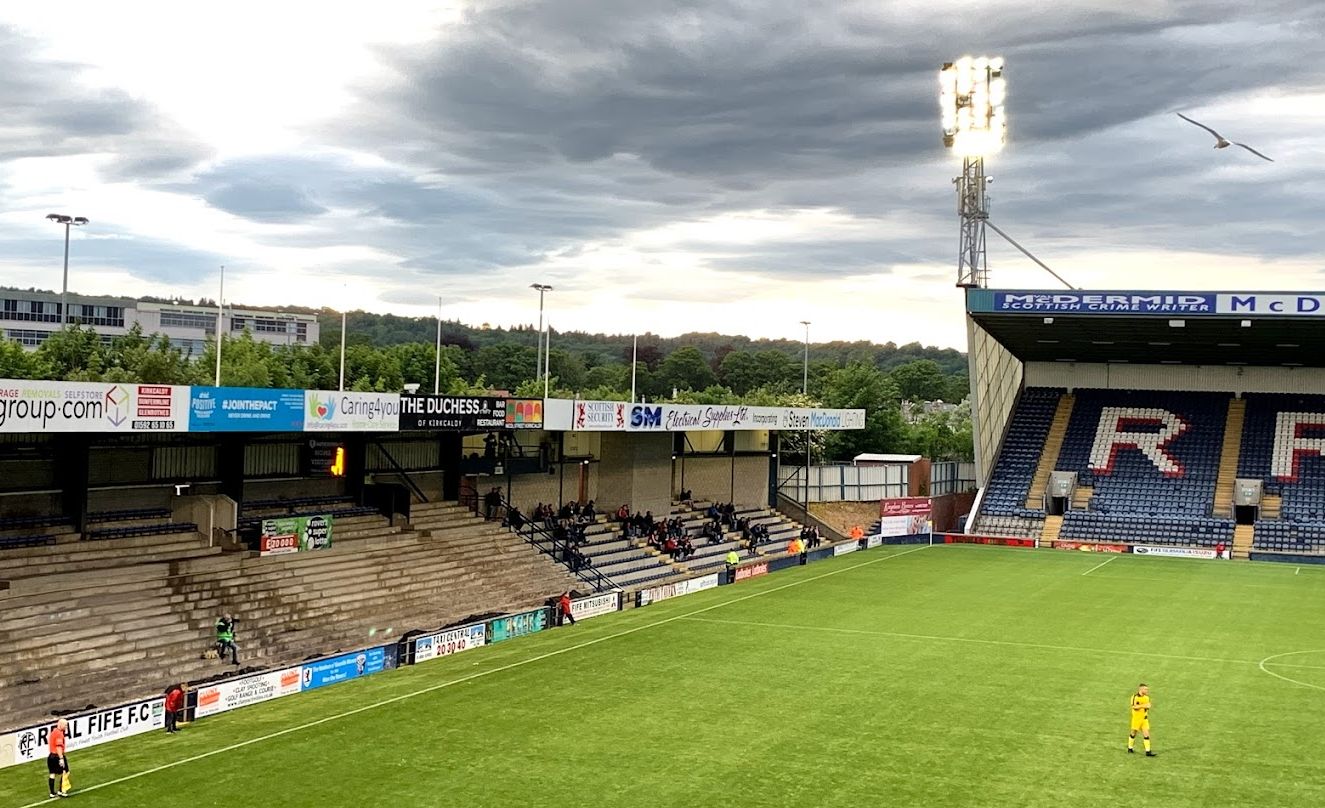
Photo showing the now largely disused Railway Stand - source unknown
The link below will take you to a superb ariel video of Stark's Park, well worth a look
https://www.youtube.com/watch?v=gzKE0NxJlaQ
Thanks to both:
https://www.terraceedition.com/home-haute/far-
corner-starks-park-mike-bayly-football-photography-groundhopping
for
much of the information helping to compile this article. Photo's from Google and name checked where possible.
